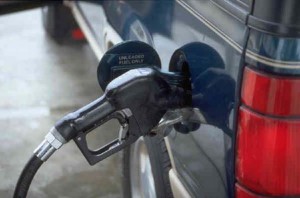Despite strong opposition from the industry, Americans weary of watching gas prices soar now want a near doubling of automotive fuel economy standards.
Nearly two-thirds of those polled by Opinion Research Group favored raising the Corporate Average Fuel Economy, or CAFE, standard to 60 mpg by 2025. The White House has been considering a bump to 62 mpg, though anticipated changes in fuel economy rules have been delayed since Republicans took control of the House last November.
Even with surveys revealing consistent consumer support for raising fuel economy standards, such measures have long lagged. After an extensive delay, the Obama Administration finally won enough industry backing to push the long-frozen 27.5 mpg mandate to 35 mpg by 2016. But despite hailing the industry/government alliance, there has been little support for going further, at least within the industry, the Alliance of Automobile Manufacturers asking the EPA – which oversees fuel economy – to wait until new studies have been completed.
Automotive executives have asserted that going to 60 mpg or above could cost $5,000 or more a vehicle – and would likely require a significant shift towards battery power. But they also argue that based on current technology, this “electrification” likely couldn’t meet consumer expectations.
But what consumers also don’t expect is to have to keep paying more and more for fuel, suggested Mark Cooper, research director and energy expert for the Consumer Federation of America, which commissioned the new fuel economy survey.
“Concern about volatile gasoline prices and support for higher standards is driven by the huge and rising bite gas expenditures are taking from household budgets—from less than $2,000 in 2009 to more than $3.000 this year,” said Cooper.
The survey also found that Americans would like to see states take the lead in pushing for improved emissions standards. The current law allows California to set its own standards – typically stricter than the federal guidelines – which other states may adopt in whole. Both industry and government leaders have fiercely fought proposals that would allow a hodgepodge of standards in individual states.


Surveys like this need to be taken with a healthy dose of skepticism, for there is a big difference in asking a consumer “Do you want higher fuel economy or lower fuel economy for your next vehicle purchase,” and “Are you willing to pay significantly more money for significantly higher fuel economy?” Americans do want higher fuel economy, as anyone would when fuel prices are high, but they are not willing to pay anything serious for it, nor are they willing to compromise their needs and desires (much) in order to get it. There are plenty of 40-mpg and higher vehicles on the market today, but they still comprise just a fraction of the total automotive marketplace. If Americans were experiencing such a sea change of opinion, as the survey suggests, hybrids and subcompacts would be a far larger portion of the US passenger car market than they are currently. Americans gravitate towards smaller vehicles reliably whenever there is fuel price uncertainty, and gravitate away from them as soon as prices stabilize, even if they stabilize at higher prices. So while Americans may indeed be ready for high-mileage vehicles, that readiness includes several caveats that make such statements meaningless without additional qualifiers.
Hi, Aaron,
Thanks for the thoughtful and pointed response. I chose to let the story stand relatively without any subjective additions but you hit the nail here. The reality is that surveys on green technology, as well as on small cars, tend to reflect motivations and attitudes that then tend to take a back seat to other realities when it is time to make the next automotive purchase. I believe there’ve been several surveys, over the last year or so, suggesting something over two-thirds of Americans will give serious consideration to hybrids next time they go looking for a vehicle. Funny considering the purchase rate is barely 3% even at a time when fuel prices are again surging to record levels.
Paul A. Eisenstein
Publisher, TheDetroitBureau.com